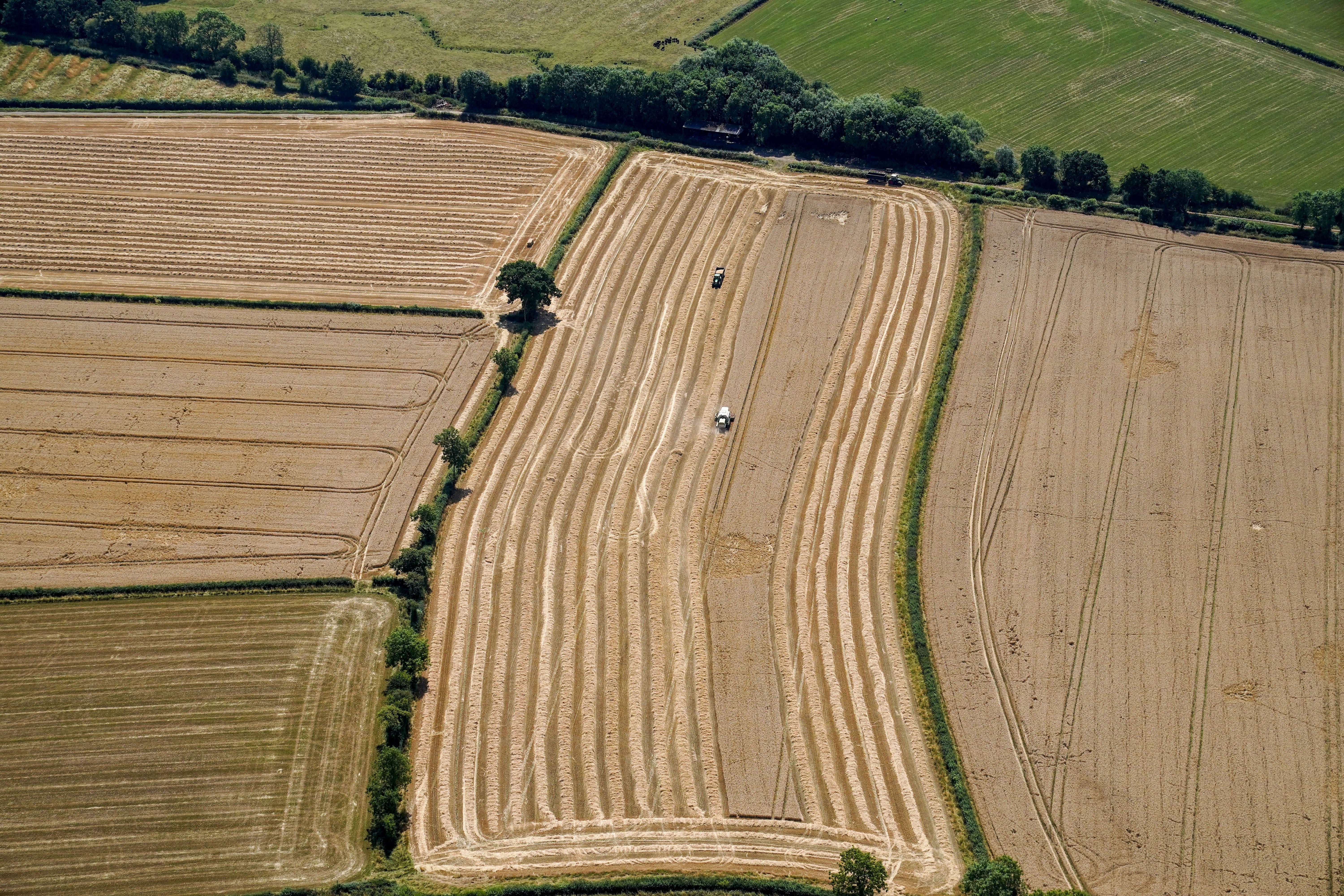Drought will mean poor quality potato crop and financial losses, farmers say
NFU deputy president Tom Bradshaw said the situation was ‘hugely challenging’ for farmers.

Your support helps us to tell the story
From reproductive rights to climate change to Big Tech, The Independent is on the ground when the story is developing. Whether it's investigating the financials of Elon Musk's pro-Trump PAC or producing our latest documentary, 'The A Word', which shines a light on the American women fighting for reproductive rights, we know how important it is to parse out the facts from the messaging.
At such a critical moment in US history, we need reporters on the ground. Your donation allows us to keep sending journalists to speak to both sides of the story.
The Independent is trusted by Americans across the entire political spectrum. And unlike many other quality news outlets, we choose not to lock Americans out of our reporting and analysis with paywalls. We believe quality journalism should be available to everyone, paid for by those who can afford it.
Your support makes all the difference.The drought that has been declared for parts of England will result in a poor quality potato crop and significant financial losses, farmers have said.
One livestock farmer said the dry conditions will lead to “inevitable” shortages, while a potato farmer said his crops are dying in front of him “every day now”.
According to an internal briefing seen by The Guardian, those in a meeting of the National Drought Group earlier this summer were told that half of England’s potato crop is expected to fail as it cannot be irrigated.
And according to the National Farmers’ Union (NFU), crops such as sugar beet and maize are showing signs of stress from a lack of rain, while crops relying on irrigation, such as field vegetables and potatoes, are also facing problems.
NFU deputy president Tom Bradshaw said the situation was “hugely challenging” for farmers, who were facing running out of irrigation water and having to use winter feed for animals because of a lack of grass.
I’ve been farming here since 1980, and there are springs that I’ve never seen dry before that are completely dried up
Robin Milton, 61, who farms cattle and sheep with his son on Exmoor, on the border of Devon and Somerset, said that the effects of the dry weather are “starting to hit now”.
“This is pretty unprecedented – I’ve been farming here since 1980, and there are springs that I’ve never seen dry before that are completely dried up,” Mr Milton said.
“Pretty much all the grass is burnt up, and any of the fodder crop that we normally put in for the autumn feed for lambs… has just disappeared, quite honestly, some of it hasn’t even germinated.”
Mr Milton said his sheep and cattle “seem quite resilient, as long as they’ve got plenty of water and some shade, which is a challenge, they seem to be quite comfortable. But undoubtedly, I suspect we’ll see the impacts later in the year.
“I expect there won’t be as much weight gain on some of them, as we would normally have expected, and that’ll be the type of longer-term impact – because obviously there isn’t the grass out there.”
The hill farmer said he is worried about the drought’s financial impact and said there is “no question” that it will affect his income.
Crops are dying in front of us every day now
He is considering selling some of his animals if the financial situation gets worse, as he will have to choose between buying new feed or selling some of his livestock.
“It comes on top of the year when there’s been so much uncertainty around farming – all of our input costs are running at an average of a 25% increase this year, way above inflation, so there’s going to be some real soul-searching at some point.”
Mr Milton said it is “inevitable” that there will be shortages as a result of the drought, “aside from the impact on us as farmers”.
“I’ve had an incredible number of farmers that have rung me recently with real concerns for their future There are an awful number of farmers in a really difficult situation.”
William Gribbon, manager of Heygate Farms in Norfolk’s Breckland region, said the potato farm started to feel the effects of the dry weather “a month ago, if not more”.
Mr Gribbon, 54, told the PA news agency: “When you get to 25 degree heat the potatoes shut down and stop growing.
“So as an industry we came into this year with an oversupply of potatoes into the market, and we’re going to go out of this year on a shortfall in the market because we’ve got reduced yields.”
“Every vegetable area is struggling as far as that goes, so it’s very challenging. We just can’t keep up with the irrigation side of things, crops are dying in front of us every day now.”
He added that as a result of the drought consumers could see differences in the quality of their potatoes early next year.
“[There might not be] the perfect skin finish on potatoes, or a perfect size on potatoes. It all tastes the same, but people’s perceptions are not going to be as perfect as what they have been in the past.”
Mr Gribbon said he is sure the drought will affect the income of the farm, which sells potatoes to wholesalers around the UK.
“My father was manager before me here, and so I’ve lived at the farm since I was six – we’ve been here 48 years, and my father has never known it this dry,” he added.